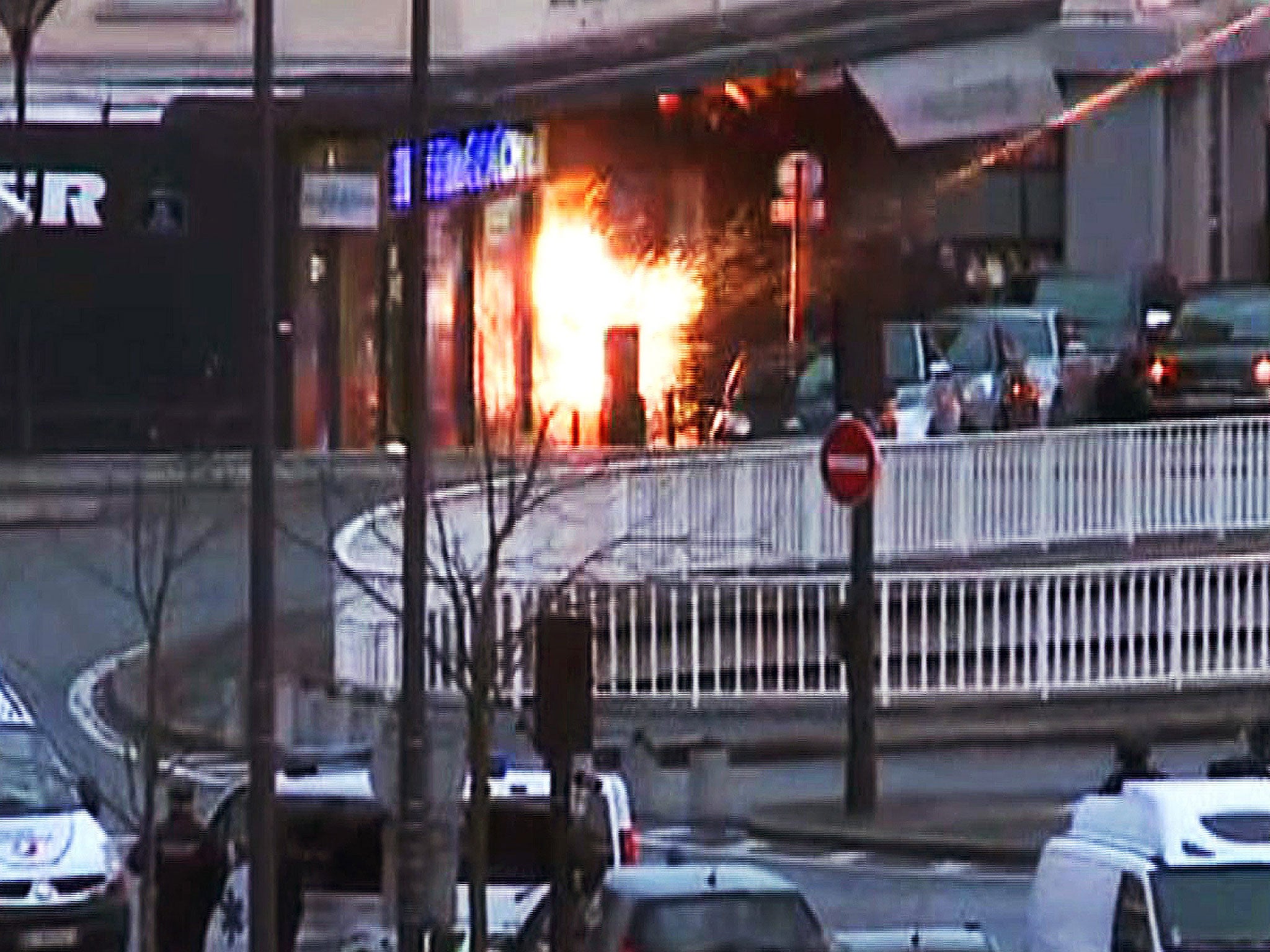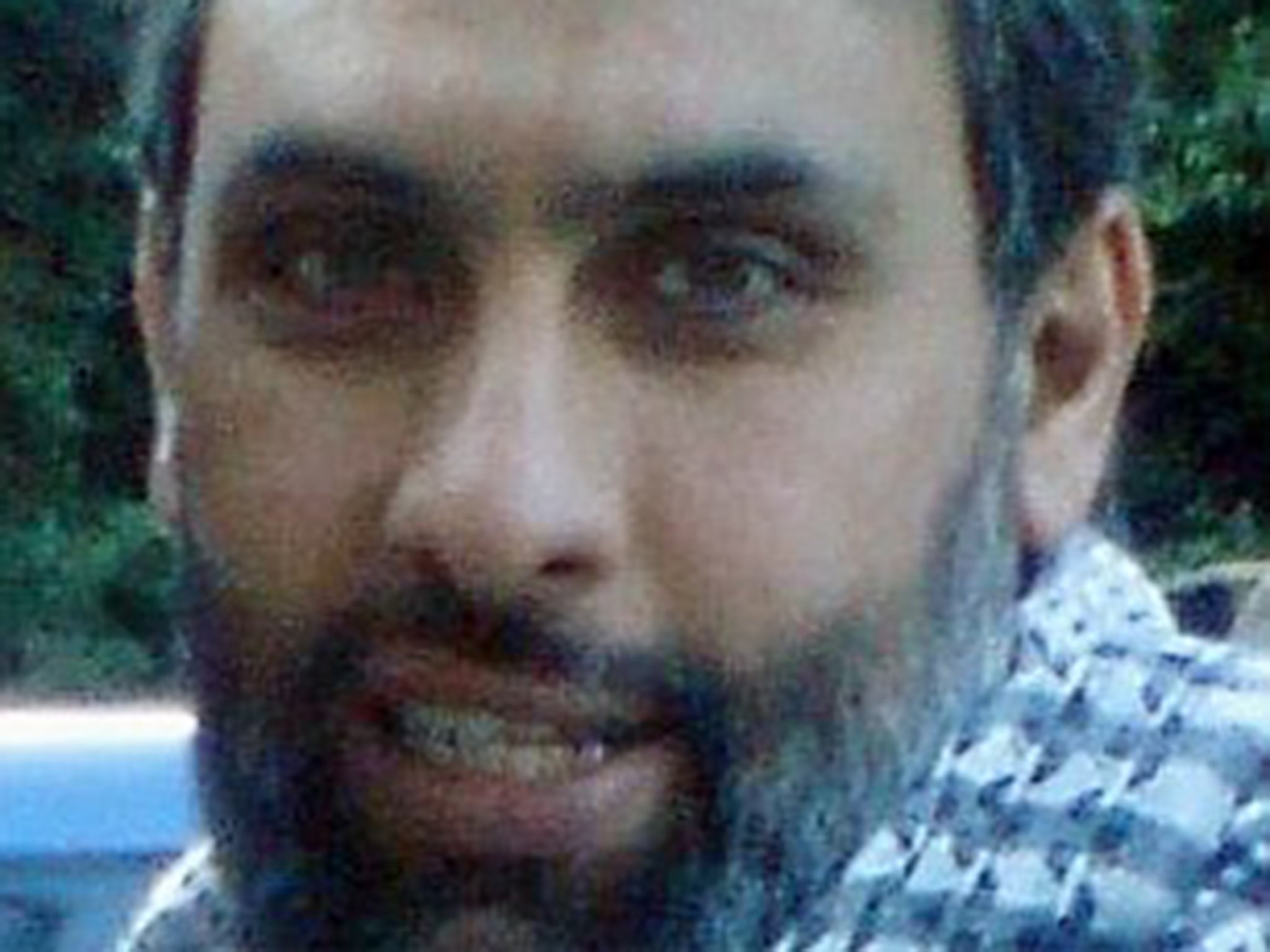Charlie Hebdo attacks background: A network of dissidents stretches from Algeria to Finsbury Park
Questions are being asked about how they managed to build an arsenal of automatic rifles and explosives

Links have begun to emerge between the Islamists involved in France’s two deadly sieges, pointing towards the chilling scenario of a well-planned jihad in the heart of Europe.
Amedy Coulibaly, who took five hostages in a kosher bakery in Paris yesterday after the murder of a policewoman on Thursday, knew and was in touch with the Kouachi brothers who carried out the Charlie Hebdo murders. He was linked to the brothers through, among others, Djamel Beghal, a senior al-Qaeda member and convicted terrorist. Intercepts on telephone calls by the French security service reportedly showed Coulibaly and the Kouachis had recently planned to visit Beghal in Murat, Cantal, where he is under house arrest, but turned back after fearing they would come under suspicion.
Last night al-Qaeda claimed it was behind the Charlie Hebdo slaughter. In a statement issued by al-Qaeda’s Yemeni branch, Aqap, the group claimed it directed the attack “as revenge for the honour” of Mohamed. Charlie Hebdo had published several cartoons featuring the Prophet. “The leadership of Aqap directed the operations and they have chosen their target carefully,” it claimed in a statement given to Associated Press.
The claim echoed a statement reportedly made by Chérif Kouachi in a two-minute telephone call with French media outlet BFMTV in which said he was commissioned by al-Qaeda in Yemen. Coulibaly is said to have met Chérif and Said Kouachi in 2004 and 2005 when they were part of the Buttes Charmont group which organised the travel of Muslims to Iraq to fight US forces. The group was dismantled by French intelligence but later reactivated.
Their mentor was Faird Benyettou, who worked as a cleaner in a Paris mosque where, it is claimed, he met Coulibaly and Chérif Kouachi.
Coulibaly, 32, was released earlier this year from a five-year jail sentence for a jailbreak plot with Beghal, who is suspected of recruiting shoe bomber Richard Reid and Zacarias Moussaoui, the “20th hijacker” in the 9/11 attacks. Coulibaly and Beghal planned, but failed, to free Smain Ait Al Belkacem, a former member of the Algerian Salafist GIA movement who was sentenced to life for a 1995 attack on a train in Orsay in which eight people died.
Coulibaly’s girlfriend, Hayat Boumedienne, 26, had also met Beghal in the past, according to reports.
In 2009, she attended a suspected jihadist training camp in Cantal, a mountainous area of central France. Others present included Chérif Kouachi. Both were questioned by French security services at the time but released for lack of evidence. They said they were in Cantal to “play sports”.
Intriguingly, a few months before his arrest in 2010, Coulibaly met Nicolas Sarkozy at a conference about disenfranchised young people arranged at the Élysée Palace. Afterwards Coulibaly said: “In truth he [Sarkozy] impressed me, [and] whether you like him or not, he is the president.”
The attackers had been on intelligence services’ radar in America as well as France. The Kouachis were put on a US “no-fly list” of suspected terrorists. The CIA had told French intelligence that Said Kouachi had been to Yemen and almost certainly took part in training with Aqap.
Questions are being asked about how the jihadists still managed to build an arsenal of automatic rifles and explosives to carry out the terror attacks.

Beghal is said to have had huge influence over a close-knit group of disaffected young Muslims. Raschid, 27, a former activist, described him as “charismatic, a very good speaker as well as a good listener. For young men who were confused and angry he provided answers.”
Beghal supposedly hero-worshipped Abu Hamza and was frequently seen at the cleric’s Finsbury Park mosque in north London where he also met Abu Qatada, who was once described as Osama bin Laden’s emissary in Europe.
On return to France he was arrested over an alleged bomb plot and met Chérif Kouachi in jail after his 2008 conviction. The two men remained in contact after their release.
Bookmark popover
Removed from bookmarks